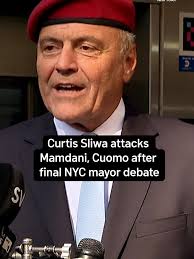
Introduction
Curtis Sliwa is a familiar figure in New York City, known for his role as the founder of the Guardian Angels, a volunteer group known for patrolling the streets to enhance public safety. His national notoriety expands beyond his safety efforts, impacting local politics and discussions surrounding crime and community engagement. As New York faces ongoing challenges with crime and safety, Sliwa’s legacy and commentary provide a significant lens through which to understand these issues.
Background of Curtis Sliwa
Birthed in Brooklyn in 1954, Curtis Sliwa grew up amid a tumultuous period in New York City history, where crime rates surged in the 1970s and 1980s. Motivated by his experiences, he founded the Guardian Angels in 1979—an organisation dedicated to putting a stop to crime through proactive community policing and outreach. The Angels are easily recognisable by their red berets and jackets, and they stand as a testament to civilian engagement in safety initiatives.
Recent Developments
In recent months, Curtis Sliwa has remained active both within the Guardian Angels and in political spheres. He is a frequent commentator on issues surrounding crime in New York City, often expressing views through various media outlets and public forums. His critiques extend to local leadership, with Sliwa arguing for more robust measures to combat crime and ensure community safety. In addition, he recently ran as a Republican candidate for mayor, signifying his ongoing ambition to influence city policy directly.
Impact on Community Safety
The Guardian Angels have adapted to meet the needs of modern-day New Yorkers, expanding their patrols to not just subways and busy streets but also schools and community centres. The group’s presence has sometimes been controversial, with debates continuing over the effectiveness of citizen-led patrols versus traditional policing methods. However, many residents credit the Guardian Angels with providing a visible deterrent against crime, fostering greater community cohesion and vigilance.
Conclusion
Curtis Sliwa’s efforts underscore the importance of community engagement in public safety, and as New York City navigates fluctuating crime rates, his methods and ideology remain relevant. With rising crime concerns sparking renewed interest in community-led initiatives, Sliwa’s enduring legacy as a pioneer in citizen policing continues to stimulate dialogue about the role of civilians in ensuring public safety. Going forward, the success or challenges faced by the Guardian Angels may further influence both community safety practices and local politics.
You may also like

The Legacy of Jane Fonda: Actress, Activist, and Icon

Erika Kirk: A Pioneering Voice in Environmental Activism
